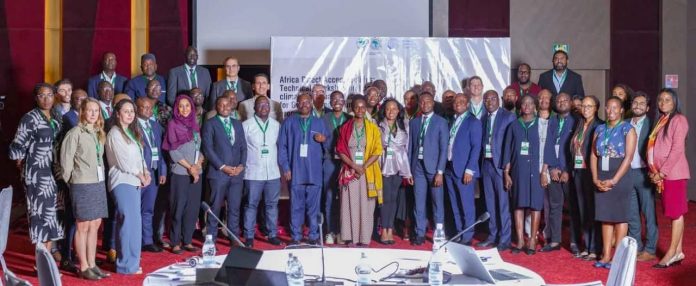Somali Magazine – The African Development Bank Group is objectively leading the continent in re-echoing the continent’s voice at the 2023 United Nations Climate Change Conference (COP28) in Dubai, United Arab Emirates. As Africa’s premier development finance institution, Africa Development Bank Group stands as a beacon of hope in airing the African declarations on climate change at the COP28 summit scheduled for November 30–12.
During the African Climate Summit held from April 4–8 in Nairobi, Kenya, African leaders stressed the importance of decarbonizing the global economy for equality and shared prosperity. They called for investment to promote the sustainable use of Africa’s natural assets for the continent’s transition to low-carbon development and contribution to global decarbonization.
At the global climate summit, Dr.Akinwumi A. Adesina, the President of the African Development Bank Group, will speak at high-level forums and have bilateral meetings with global leaders and key players.
As a precursor to the forthcoming UNFCCC, the Nairobi African Climate Summit brought all African leaders together, who chatted ways to push for accelerated climate action and new financing mechanisms that would save the planet from global warming.
During the African Climate Summit, the leaders signed the Nairobi Declaration on climate change and called for action, and among the declarations was demanding urgent and concerted action from all nations to lower emissions and reduce the concentration of greenhouse gases in the atmosphere.
They also underscored the IPCC confirmation that Africa is warming faster than the rest of the world, and if unabated, climate change will continue to have adverse impacts on African economies and societies and hamper economic growth and wellbeing.
The leaders also commend the Arab Republic of Egypt for the successful COP27 and its historic outcomes, particularly regarding loss and damage, just transition, and energy, and call for the full implementation of all COP27 decisions.
The team further expressed concerns that many African countries face disproportionate burdens and risks arising from climate change-related unpredictable weather events and patterns, including prolonged droughts, devastating floods, out-of-season storms, and wildfires, which cause massive humanitarian crises with detrimental impacts on economies, health, education, peace, and security, among other risks.
Recalling the COP27 climate talks in Egypt, leaders agreed to compensate for the losses and damages to the developing countries that are vulnerable to climate change. However, the agreement has become a ‘dystopian nightmare’ considering that not much has been done toward the compensation.
As one of the declarations, the African leaders call for the fulfillment of the funding promise as agreed during the previous COP27.
“We call for the operationalization of the Loss and Damage Fund as agreed at COP27 and resolve for a measurable Global Goal on Adaptation (GGA) with indicators and targets to enable assessment of progress against the negative impacts of climate change,” reads part of the declarations.
The African leaders further wants the COP28 to “honor the commitment of provide $100 billion in annual climate finance, as promised in 2009 at the UNFCCC COP15 in Copenhagen, Denmark.”
Is the world prepared for Vision 2030?
With seven years left to achieve the Sustainable Development Goals (SDGs) of 2030, the world is still struggling with shortcomings that slow down the hopes of meeting the goals.
Africa, being the most dwindling continent in the world, has about 600 million people who lack access to electricity, while about 970 million lack access to clean cooking. About 400 million people in Africa have no access to clean drinking water, and 700 million lack good sanitation. This is a clear indicator that the world is far from Vision 2030, which tentatively looks to enhance equity and wealth creation opportunities for the poor.
On the other hand, based on the Intergovernmental Panel on Climate Change (IPCC), the world is not on track to keep within reach of the 1.5°C limit agreed in Paris, and global emissions must be cut by 43 per cent in this decade.
According to the Global Historic Emissions, about 60 per cent of greenhouse gas emissions come from just 10 countries, while the 100 least-emitting countries contributed less than 3 percent. This is a reality of how the planet is boiling due to the high rise in temperature that eventually destroys the ozone layer.
As scientists say, with no proper intervention towards climate change, it would lead to frequent intense droughts, storms, heat waves, rising sea levels, melting glaciers, and warming oceans that can eventually directly harm animals, destroy the places they live, and wreak havoc on people’s livelihoods and communities.

